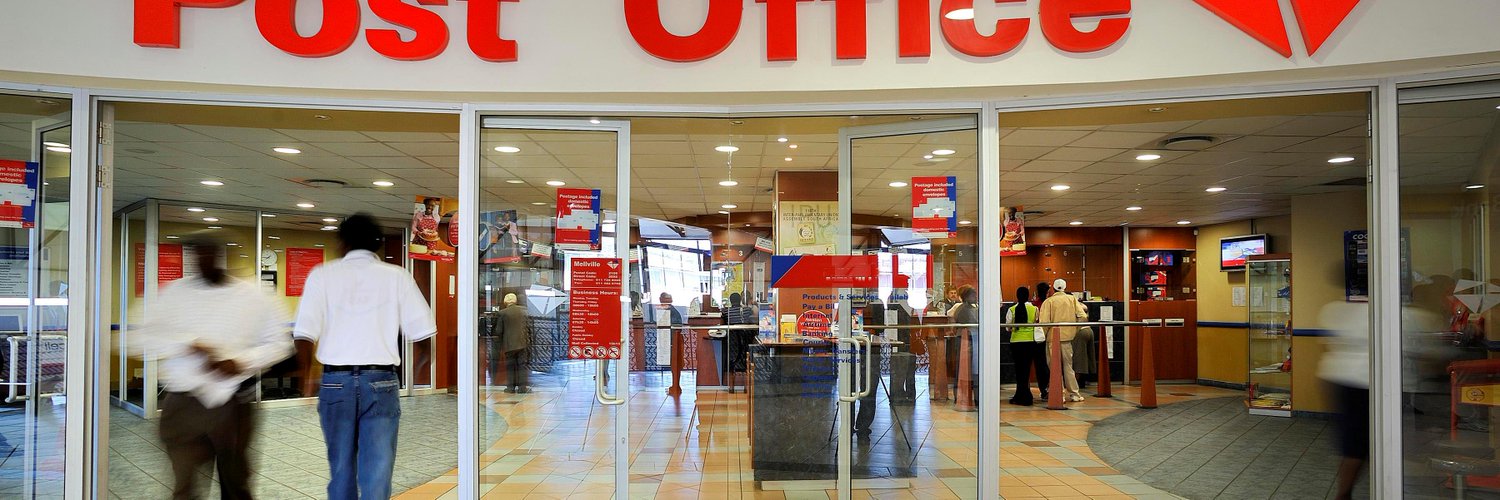Over the last decade, the South African Post Office (SAPO) has experienced significant business issues, including debt to creditors and a lack of revenue collection. More recently, it has been provisionally liquidated. Due to these difficulties, SAPO has been forced to reconsider its business strategy because it needs to be more effective but finds it difficult to keep up with its closest competitors, the private sector. Should SAPO survive provisional liquidation and not reach final liquidation, the long-awaited “Post Office of Tomorrow” must be implemented immediately if the struggling state-owned enterprise (SOE) is to be saved.

Source: Twitter
The Post Office of Tomorrow would entail redesigning SAPO, efficiently digitising the organisation, and bringing it up to date with current technological advancements in the postal business while preparing it for a more technological future. For the Post Office of Tomorrow, there is an opportunity to take part in business activities like distributing medications on behalf of the public healthcare sector, partnering with local municipalities to boost access to service delivery, and partnering with e-commerce market players where SAPO branches would serve as delivery points. These steps would enable the SAPO to be an effective competitor, regain some market share, and subsequently contribute to addressing the problems related to its negative balance sheet.
South African Post Office challenges
Following a court application on 9 February by Bay City Trading 457, the property company owed a large amount of unpaid rent (they allege a total of R273,368) by SAPO, the Pretoria High Court on 23 March 2023 placed the South African Post Office into provisional liquidation. This ruling resulted from financial difficulties that persisted for over a decade at the SOE. Currently, the SOE’s liabilities exceed its assets by R4 billion, and its debt totals R8 billion. These financial difficulties have resulted in unpaid monies owed to creditors, unpaid workers, unpaid Unemployment Insurance Fund contributions for workers, and retrenchments, among other things.
One of the factors contributing to the post office’s negative balance sheet is that the SOE has yet to invest in development that matches the times in which it operates. It must effectively respond to its market, which entails a society with increasingly advanced technology. Essentially, the post office needs to catch up to its private-sector counterparts in terms of technology adoption. Its inability to do so hitherto has reduced its value proposition in the market. Today, the general perception is that the Post Office and its offerings are unreliable and less advantageous than those in the private sector, resulting in fewer customers to provide services to and less financial capacity to modernise the SOE. Dealing with these problems will require the government to make deliberate policy decisions to enable growth and public-private partnerships.
The South African Post Office Amendment Bill
In April 2022, former Minister of Communications and Digital Technologies, Khumbudzo Ntshavheni, introduced the South African Post Office Amendment Bill for public comment. This step in the policy-making process was essential to gather stakeholder views on the proposed legislation. Almost a year later, on 28 February 2023, the Department gazetted its plan to present the 2022 bill before the National Assembly, which would be sent back to the President for signing into law. As a piece of legislation, this bill presents an opportunity for the Post Office to be enabled to effect significant institutional redesign.
This amendment bill suggests that it is also the government’s view that the current business model of the Post Office is not viable and needs to be redesigned. That should also include strengthening its governance model towards boosting accountability measures. The accountability issues at SAPO have continuously landed the SOE at odds with the Auditor General (AG). In 2021, the AG found SAPO to be commercially and technically insolvent. For the financial statements for 2021-2022, the AG stated that they were unable to gather enough pertinent audit evidence which would have served as a foundation for an audit opinion. As such, the AG’s office could not give an audit opinion. In dealing with the leadership challenges prevalent at the SOE, the Post Office of Tomorrow would have to be given clear performance indicators allowing the relevant institutions to monitor and evaluate the dilapidating SOE consistently. According to the Financial Mail, the Post Office has “guzzled R8.4bn in taxpayer bailouts in the last five years.” Meanwhile, the probability of a parcel actually arriving is a mere 68%, while the SOE paid its directors and other “top brass” a total of R23.9m.
To have any hope of attaining profitability, an expanded mandate of the Post Office that allows it to venture into e-commerce services would enable an environment for partnerships with business and government departments that could tap into the communities in which Post Office infrastructure is located. As service delivery is increasingly facing challenges in communities, the Post Office can help address some of these challenges by being an agent for delivery on behalf of government departments. Beyond this, to respond to current market demands, the Post Office must partner with business players with an online presence but needs more infrastructure to reach its customers. However, to sufficiently enter this business space, the Post Office must first deal with its debt challenges and then fund redesigning its business model.
South Africa’s socioeconomic challenges require an expansion of functional, well-governed private-public partnerships. This extends to the commercial difficulties confronting our SOEs. As development partners, the private sector could play a significant role which would, among other things, contribute to funding the Post Office of Tomorrow in return for utilising SAPO’s infrastructure to reach their customers. So now is the time to test the ‘partnership’ part of social partners in the South African economy.
This article first appeared in the Mail & Guardian on 5 May 2023.
Mxolisi Zondo is a Researcher in the Governance Delivery and Impact programme at Good Governance Africa. He holds a BA Honours in International Relations and a Bachelor of Political Science from the University of Pretoria (UP). He is currently pursuing his Master of Arts Degree in Diplomatic Studies at UP. His dissertation looks at the extent to which South Africa’s involvement in peace missions on the African continent serves the country’s national interest. Before joining Good Governance Africa, he worked as a Public Policy Intern at Frontline Africa Advisory. He has also worked as an Assistant Lecturer and Research Assistant at the University of Pretoria.







